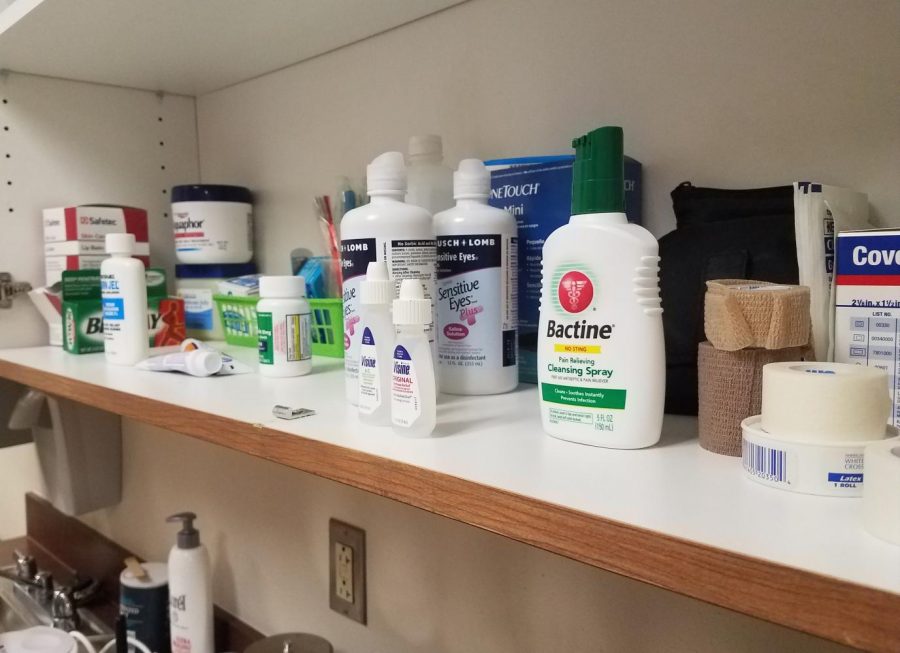Why Students Need a Form to Take Medicine
Imagine you’re sitting in class and all of a sudden you get a throbbing headache. Your first reaction might be to reach into your bag and grab some medicine that you carry for these situations. Although this may seem like a harmless solution to your problem, it is actually against district policy.
In order for students to take a pain-relieving pill, they have to go through a specific process to have it at school.
“Any medication that a student has on campus has to go through the clinic. And so students are able to have those things at school with parent consent, and there’s a form that…has to be filled out. You can get that from the nurse or on our school website and if that’s filled out by the parent and the parent brings the medication up here with the form, then a student has permission to take it. You can’t carry it around in your bag,” Assistant Principal Michelle Zurek said.
Some students don’t know that such a procedure exists at our school.
“[Students] are always going to come in here and say ‘hey, can I please get some Tylenol or some cough drops or Ibuprofen?’ and we have to explain to them that has to be brought up by a parent, in their original container with the appropriate medication or paperwork,” School Nurse Kelley Rousser said.
There are students that see issues with having to fill out the form.
“If they’re in pain, or they just have a serious headache, pills are not going to hurt anyone. It’s just kind of a dumb rule that you can’t take it without permission,” junior Sergio Acuna said.
While some students don’t like this system, others don’t mind it.
“But for people that do have medicine normally, I think that’s safer for them, so they don’t have problems getting the medicine,” senior Ramesh Kanakala said.
Although most medicines must be registered in the nurse’s office, there are a few exceptions to the policy.
“It would be an EpiPen, which is epinephrine. So in case they have an allergic reaction we can give them the medication,” Rousser said. “And if a kid is known to be an asthmatic, and has medication but they don’t happen to have it here, we do have albuterol that we can give them through a nebulizer to hopefully bring their oxygen levels back up.”
While these are the exceptions, administrators still want to reinforce the process of filling out the form and leaving medicine in the nurse’s office.





